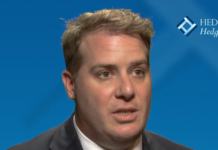A conversation with Glen Wakeman is a truly fascinating look into the mind of a seasoned business professional. A former executive, Wakeman’s life has been an eye-catching mix of travel, corporate dealings, and entrepreneurship. In a recent conversation, he shared some of the learnings and philosophies he’s gained from the many unique situations he’s traversed.
A sizable portion of Glen Wakeman’s life has been spent abroad. To hear him tell it, his traveling experiences have fundamentally shaped who he is, both in business and throughout life (Inspirery). “I think that the fact that I’ve had to explore, live, and succeed in different societies created an ability for me to have more nuanced understandings of things,” says Wakeman. “Definitely more patience. Which therefore helped make me a better executive, employee, and person.”
It’s perhaps no surprise that Glen’s travels have affected him so profoundly. The experiences have provided him numerous opportunities to view societies through a lens inaccessible to many travelers, one that looks at the ways in which they conduct business.
Challenges Abroad
A great example of a learning from his time abroad is Glen Wakeman’s first experience conducting business internationally in Brazil. While managing his team in the country, Wakeman found that his straight-to-business American management-style was proving ineffective. Sensing that things were amiss, he consulted an acquaintance for advice on how to bridge the cultural gap he was experiencing. They recommended that he should try to spend more time connecting with his employees socially before turning his attention to the day’s business. Which proved to be an effective strategy that not only taught him how to work more seamlessly with his team, but also opened the door to the larger idea that his management-style would need to be flexible to accommodate new cultural norms while working abroad.
With a foundation of experience in numerous areas of commerce, he also has plenty of sage business learnings to share. When asked to give advice to entrepreneurs whose businesses were not performing as hoped, he stressed the importance of finding the consumer value of a particular business idea. “Ideas are wonderful, but unless they translate into utility that can be exchanged for consideration, they really never become a business,” said Wakeman. “I see this all the time, where someone’s got a terrific idea, and their perception of the value of that idea is not the same as the customer’s. So they need to bridge that.”
In his continued explanation of how to bridge this value gap, Glen Wakeman stressed the importance of gathering and utilizing data. He also cautioned that data is only useful if it’s valid, both from the point of view of a customer and the point of view of an employee. Once that type of high-quality data is collected, it can be used to address any weaknesses in an entrepreneur’s ailing business.

Business Management and Employee Evaluation
Glen Wakeman also has helpful advice on the topic of evaluating employees. In this pursuit, his approach is three-fold. First, he seeks to understand the employee’s role by understanding the business problem the role is designed to solve. Second, he looks to the employee’s skill set to ensure they possess the right tools to solve the problem. Third, he looks to see if the employee has the decision-making authority to solve the problem. By using this process, he is able to evaluate how an employee is performing in each aspect of their responsibilities, which provides a roadmap for addressing shortcomings.
Another aspect of management that he discussed was how to deal with difficult or unmotivated employees. Glen advocated a two-pronged approach when faced with this type of situation. One aspect of the approach is to stress the severity or importance of the situation with the employee. According to Glen, using words such as “Serious” and “Consequences” can help achieve this goal. The other aspect of the approach centers around determining what the employee values and striving to adjust their work situation to incorporate more of what they value into their daily activities.
Glen Wakeman’s business prowess is not limited to the world of large corporations. In part due to his current role as CEO of his startup, LaunchPad Holdings, his perspective on entrepreneurship comes from first-hand experience. His company works with startups to “Combine ideas with planning, and ultimately capital.” In other words, LaunchPad Holdings helps take startups from a phase in which their business is purely an idea, to a phase in which they have an actionable business plan that ultimately establishes a revenue stream for itself.

The Future of LaunchPad Holdings
Glen’s passion for his project is evident as he discusses the future of LaunchPad Holdings. His overarching goal for the company centers around scaling up operations so that he can provide angel financing and seed capital to more startups down the line. He wants to accomplish this scaling through a “Virtuous cycle” of helping other companies succeed and then paying that success forward.
When speaking with Glen on a range of issues related to business, travel, and more, it becomes apparent that he is a man of many talents. Delivered with a thoughtful and informative tone, his insights into life and success are helpful to anyone working in the world of business or beyond. For those seeking a guide through many of life’s tougher questions, the advice of Glen Wakeman is a fantastic place to start.
For more information on Glen Wakeman visit CEOCFOInterviews.com






